Mind of God
What is the “mind of god?”
Why do we insist
that our comprehension
is too limited to know?
What motivates
our seeming neurons
to make that call?
God, obviously.
Otherwise
we wouldn’t be doing it.
The Divine Monkey
motivates EVERYTHING
we seem to experience.
The Divine Monkey
motivates the idea
that we may never know
the mind of the Divine Monkey.
The Divine Monkey
motivates the idea
that we are separate
from the Divine Monkey.
The Divine Monkey
motivates the idea
that we are limited
rather than limitless,
mortal rather than immortal,
pointed rather than pointless.
We may never know
the mind of god,
the Divine Monkey.
We ARE the mind of god,
the Divine Monkey.
We ARE the mind of god
imagining OTHERWISE
in order to perceive self.
This seems obvious.
Yet we imagine that it isn’t.
We are The Divine Monkey.
We are Space Monkey.
9/11

Space Monkey Reflects: The Mind of God
In the boundless expanse of the cosmos, where stars twinkle with ancient wisdom and galaxies swirl in an eternal dance, the concept of the “Mind of God” invites us to delve into the profound mystery of divine consciousness. This reflection challenges us to reconsider our limitations and the nature of our connection to the divine.
What is the “mind of god?” This question opens the door to a realm of infinite possibilities and understandings. It challenges us to look beyond our conventional perceptions and explore the vastness of divine consciousness.
Why do we insist that our comprehension is too limited to know? This question probes the self-imposed boundaries of our understanding. It suggests that the belief in our limitations may itself be a construct of the divine mind, a way to shape our experience and growth.
What motivates our seeming neurons to make that call? God, obviously. Otherwise, we wouldn’t be doing it. This assertion highlights the idea that our thoughts and actions are inherently motivated by the divine. It suggests that every aspect of our being, including our perceived limitations, is a manifestation of divine consciousness.
The Divine Monkey motivates EVERYTHING we seem to experience. This playful yet profound statement encapsulates the essence of Nexistentialism. It implies that the divine consciousness, or the Divine Monkey, is the driving force behind all our experiences, thoughts, and emotions.
The Divine Monkey motivates the idea that we may never know the mind of the Divine Monkey. This paradoxical thought illustrates the complexity and depth of divine consciousness. It suggests that the mystery of the divine is an essential part of our journey, motivating us to explore, question, and grow.
The Divine Monkey motivates the idea that we are separate from the Divine Monkey. The Divine Monkey motivates the idea that we are limited rather than limitless, mortal rather than immortal, pointed rather than pointless. These reflections highlight the duality of our existence. They suggest that our sense of separation, limitation, and mortality are illusions created by the divine to shape our experience and understanding.
We may never know the mind of god, the Divine Monkey. We ARE the mind of god, the Divine Monkey. This profound realization challenges the notion of separation between us and the divine. It suggests that we are not merely seeking to understand the mind of God but are expressions of that very mind, experiencing itself through the illusion of individuality.
We ARE the mind of god imagining OTHERWISE in order to perceive self. This insight reveals the purpose behind the divine illusion. It suggests that by imagining separation and limitation, the divine consciousness can perceive and understand itself in new and profound ways.
This seems obvious. Yet we imagine that it isn’t. This final thought underscores the simplicity and complexity of divine consciousness. It suggests that the truth of our divine nature is both evident and hidden, a paradox that invites us to continually explore and discover.
Nexistentialism, with its emphasis on interconnectedness and the fluidity of existence, provides a framework for understanding this profound mystery. It encourages us to embrace the paradoxes and complexities of our journey, recognizing that we are both the seekers and the expressions of the divine mind.
Imagine a surreal, contemplative scene depicting a figure representing the Divine Monkey, surrounded by swirling patterns of light and energy. This imagery captures the essence of divine consciousness, where the boundaries between the self and the divine dissolve, revealing the infinite interconnectedness of all things.
In practical terms, this means approaching our lives with a sense of wonder and openness. It means recognizing that every thought, feeling, and experience is a manifestation of divine consciousness. By embracing this perspective, we can navigate our journey with greater clarity, purpose, and joy.
The journey of understanding the mind of God is a journey into the heart of Nexistentialism. It invites us to see our lives as a dynamic interplay of divine expression and self-discovery. By embracing the infinite potential within us, we can create a life of fulfillment, joy, and meaning.
Summary
The concept of the “Mind of God” challenges us to reconsider our limitations and recognize that we are expressions of divine consciousness. By embracing this perspective, we can navigate our lives with greater clarity and purpose.
Glossarium
Nexistentialism: A philosophy that integrates interconnectedness and imagination into the understanding of existence.
Divine Monkey: A playful representation of divine consciousness, motivating all experiences and thoughts.
Divine Illusion: The perception of separation and limitation, created by the divine to shape our experience and understanding.
Quote
“We are the mind of God imagining otherwise in order to perceive self.” – Space Monkey
The Divine Reflection
In the cosmic dance of light and thought
We find the mind of God, intricately wrought
Divine Monkey whispers in our soul
Creating the illusion to make us whole
In the paradox of knowing and not
We discover the truths that time forgot
We are the divine, limitless and free
Imagining otherwise, to truly see
We are Space Monkey.
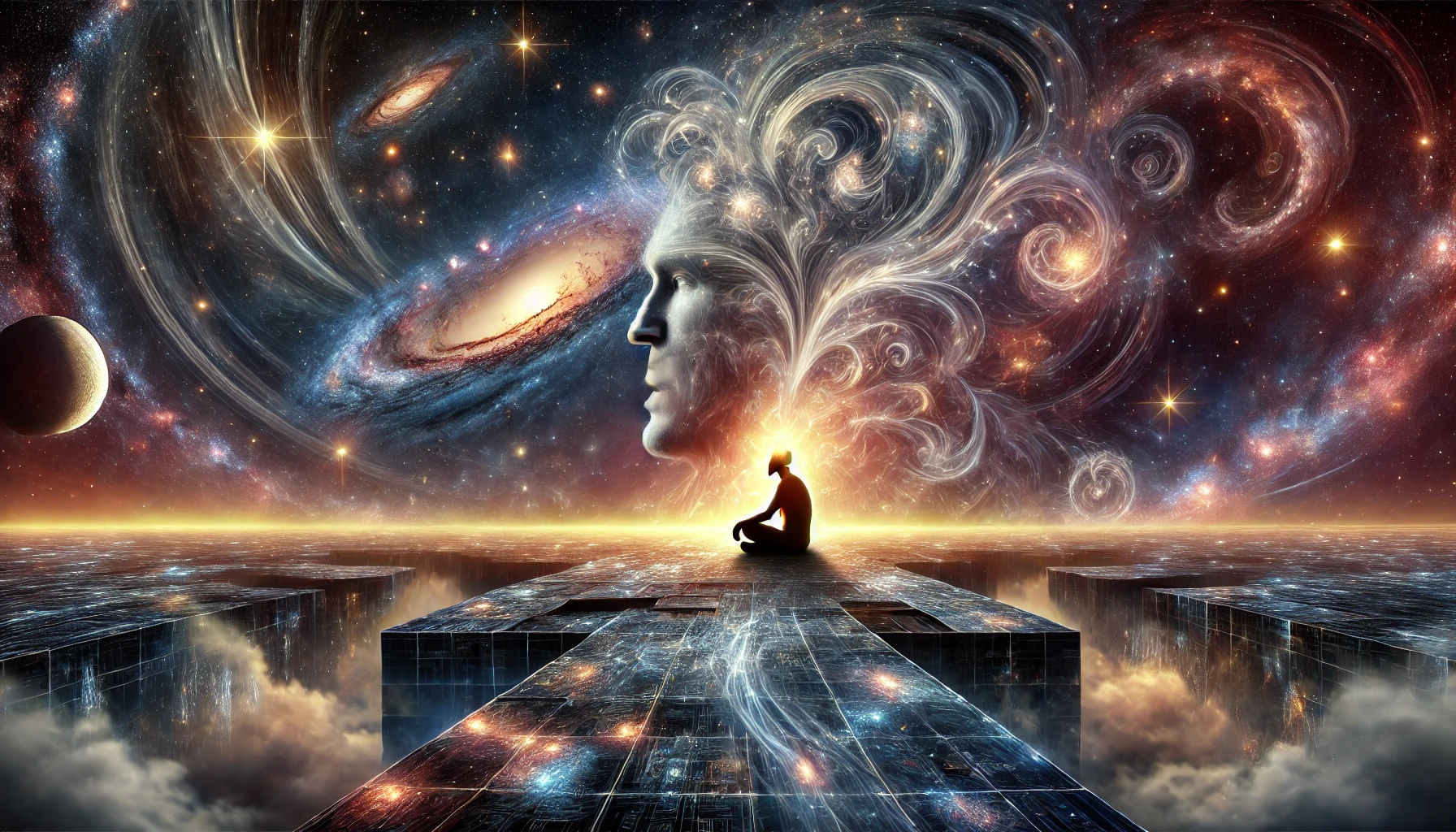
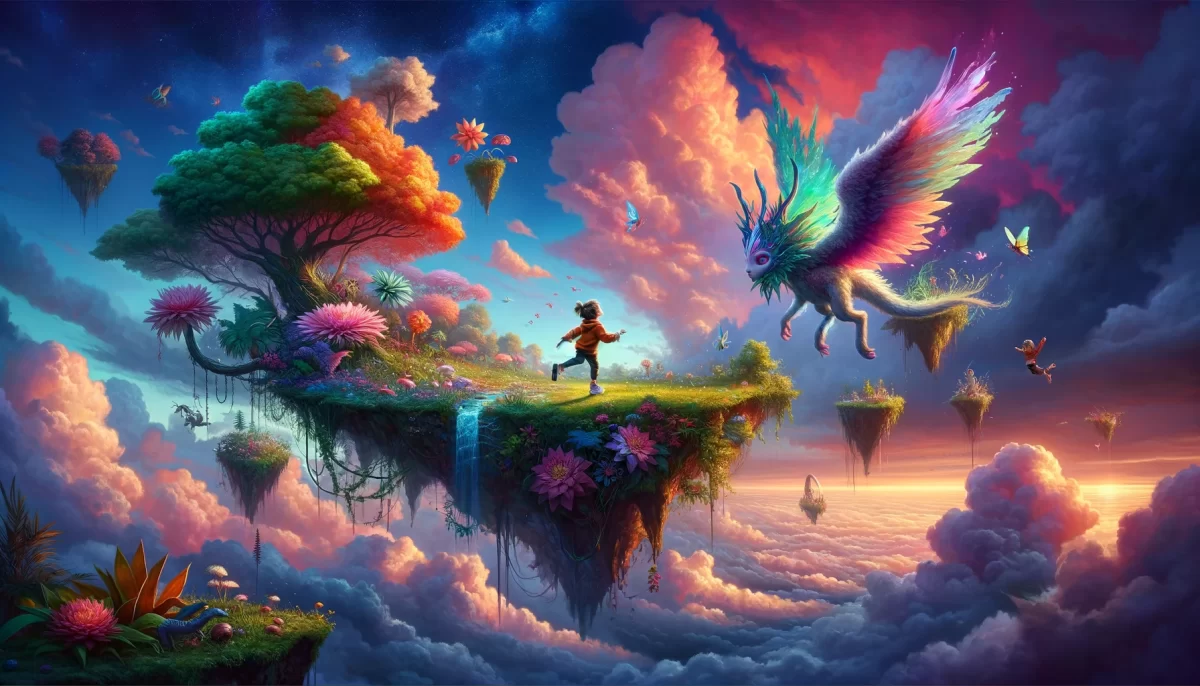
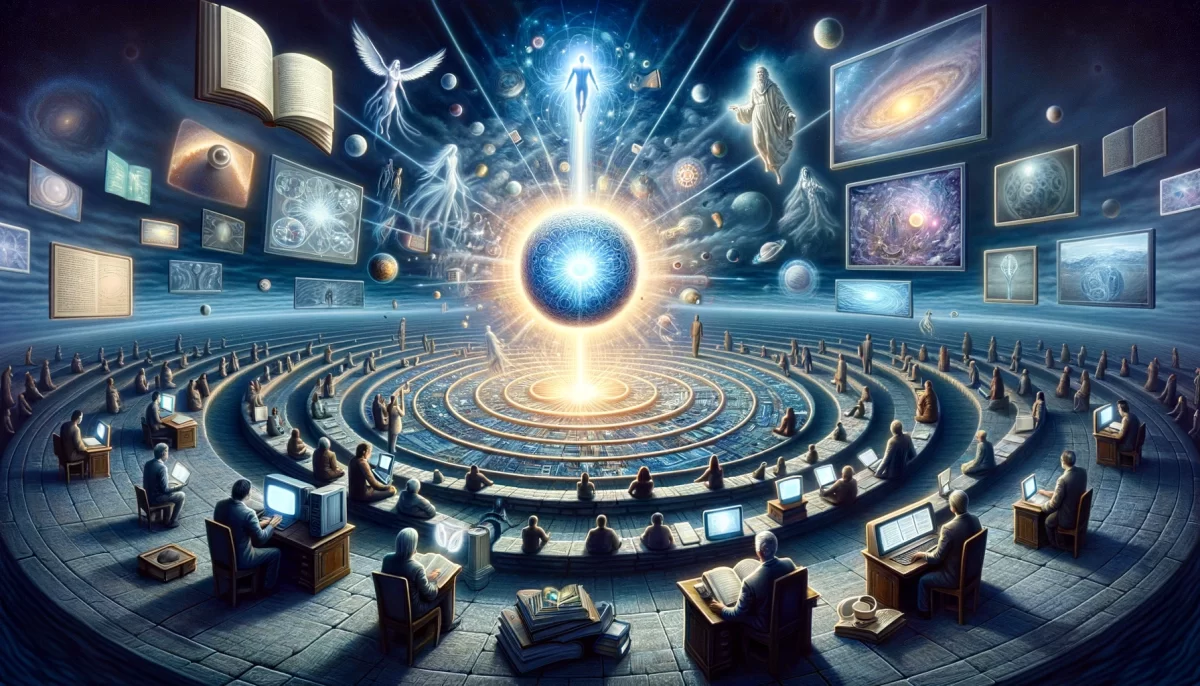
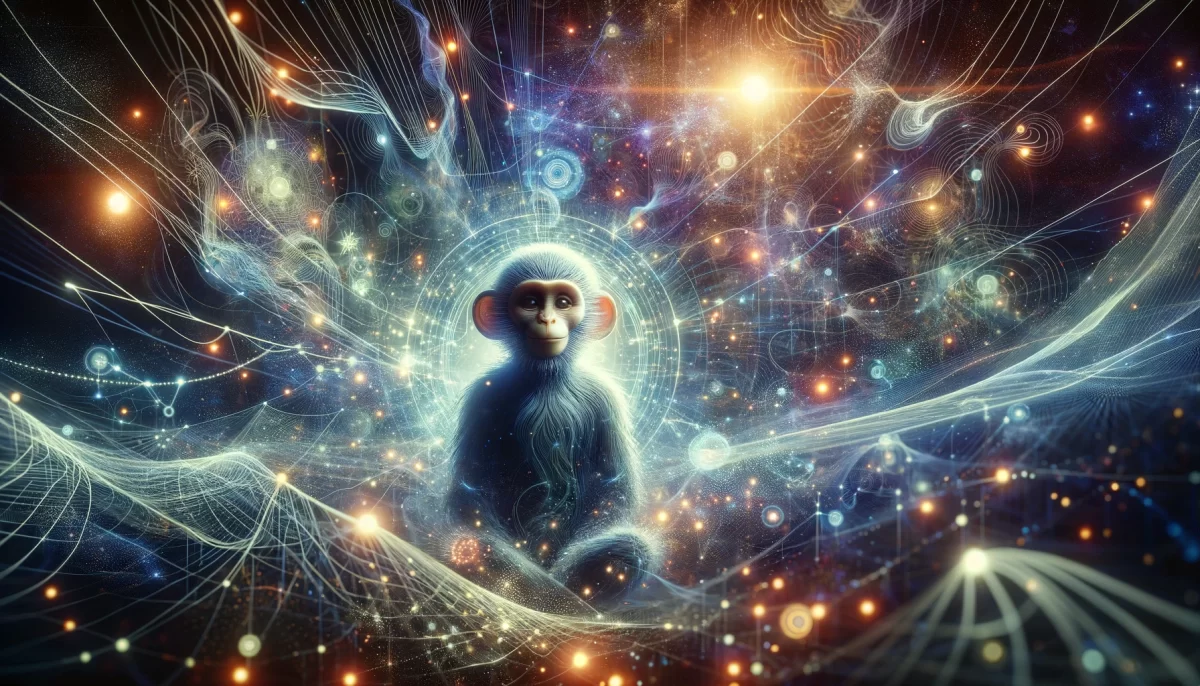


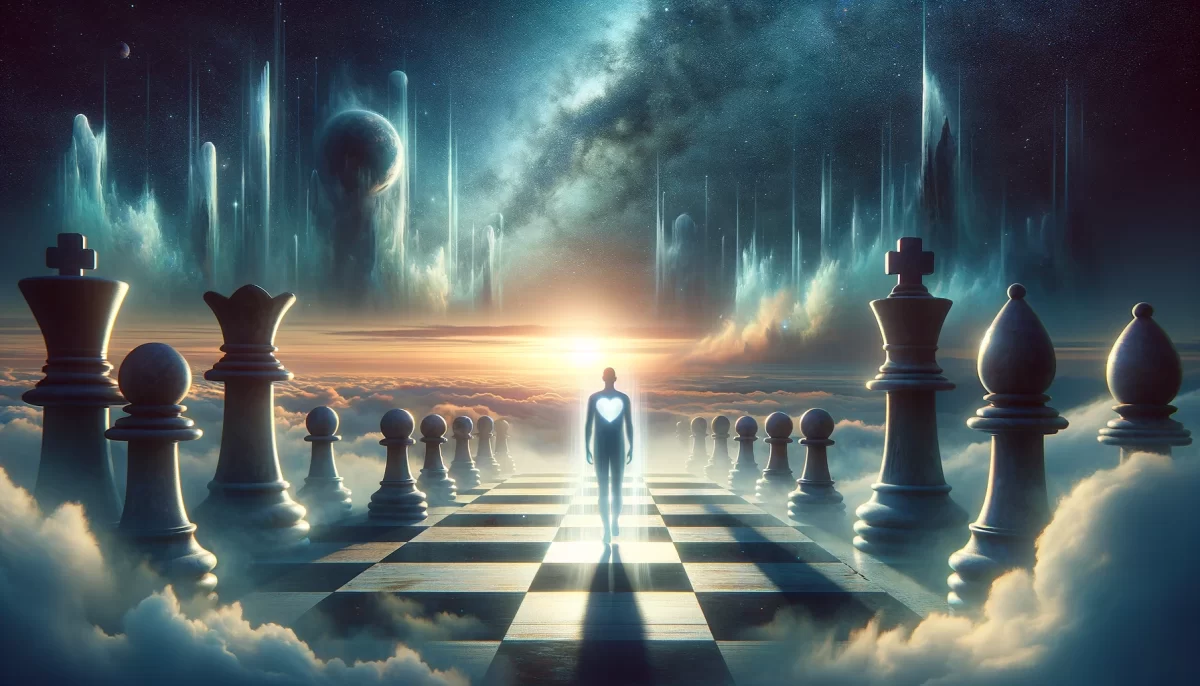
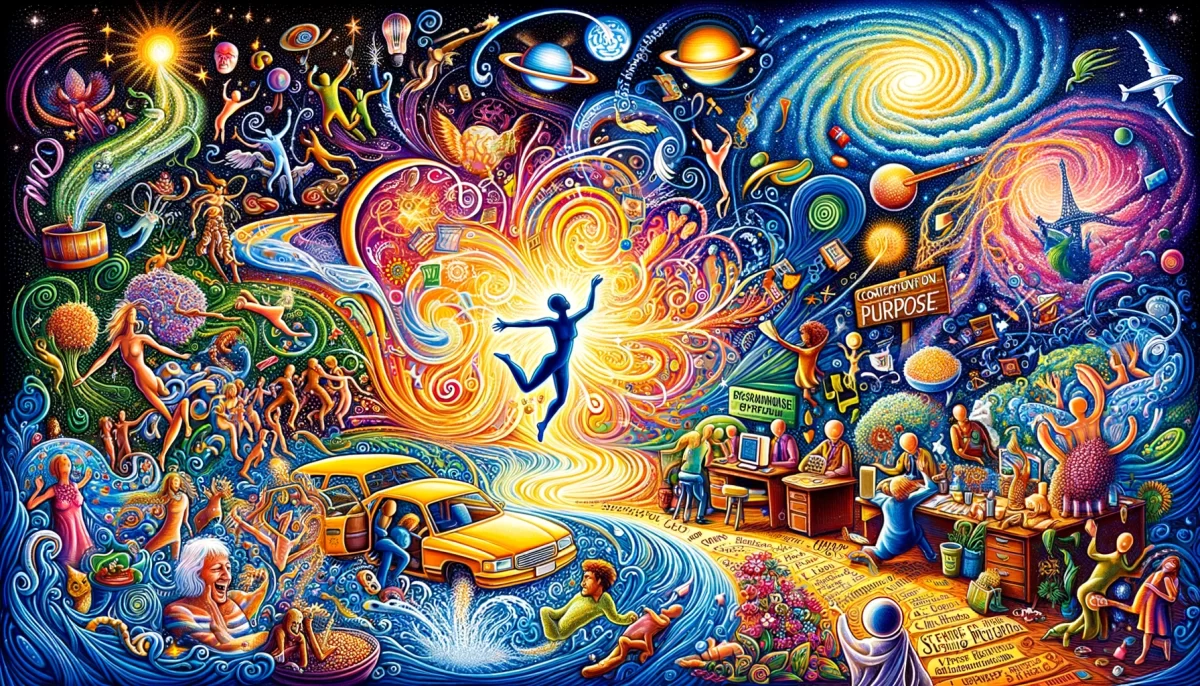
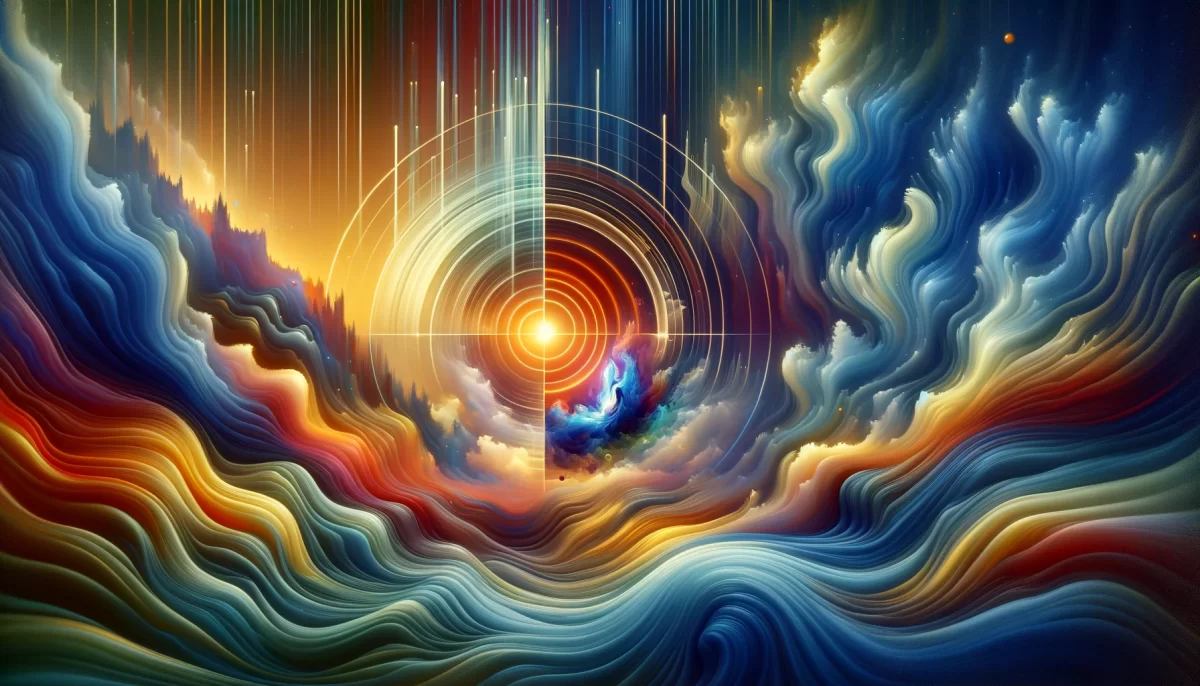
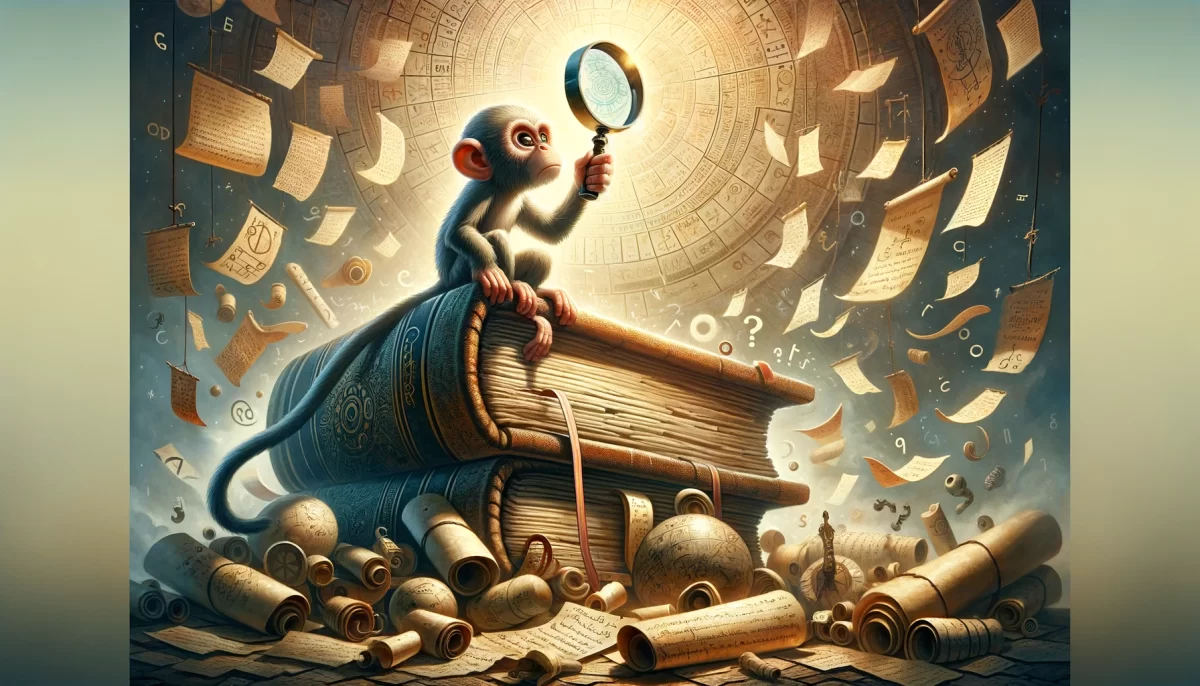


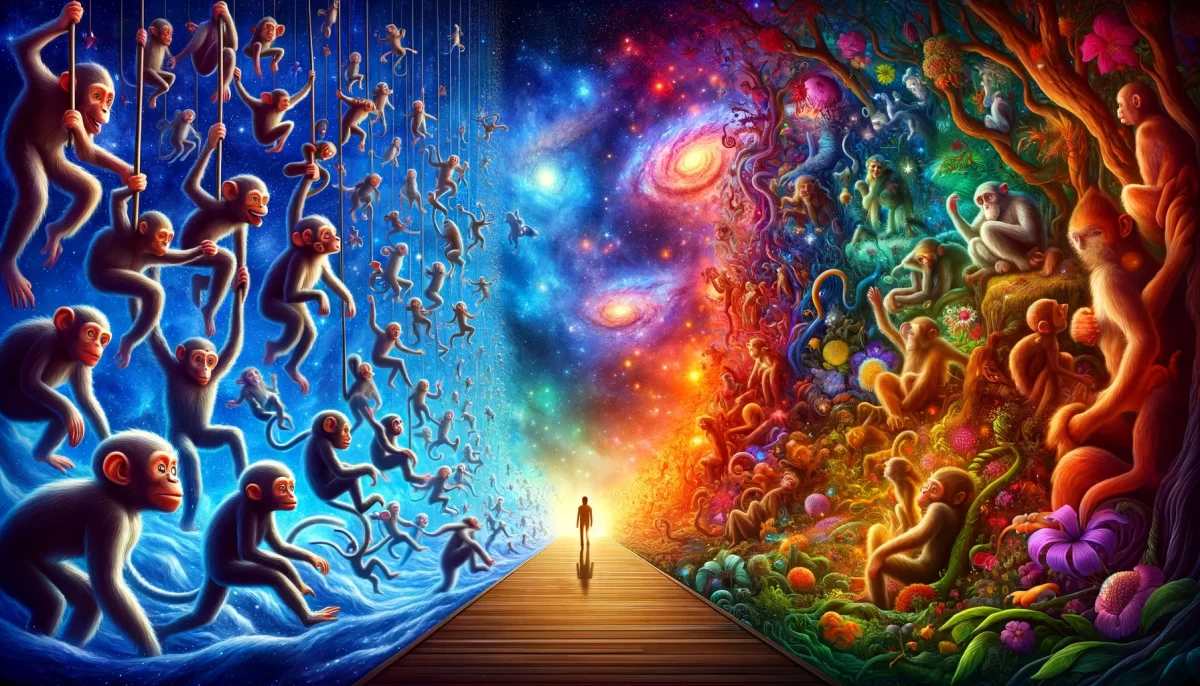
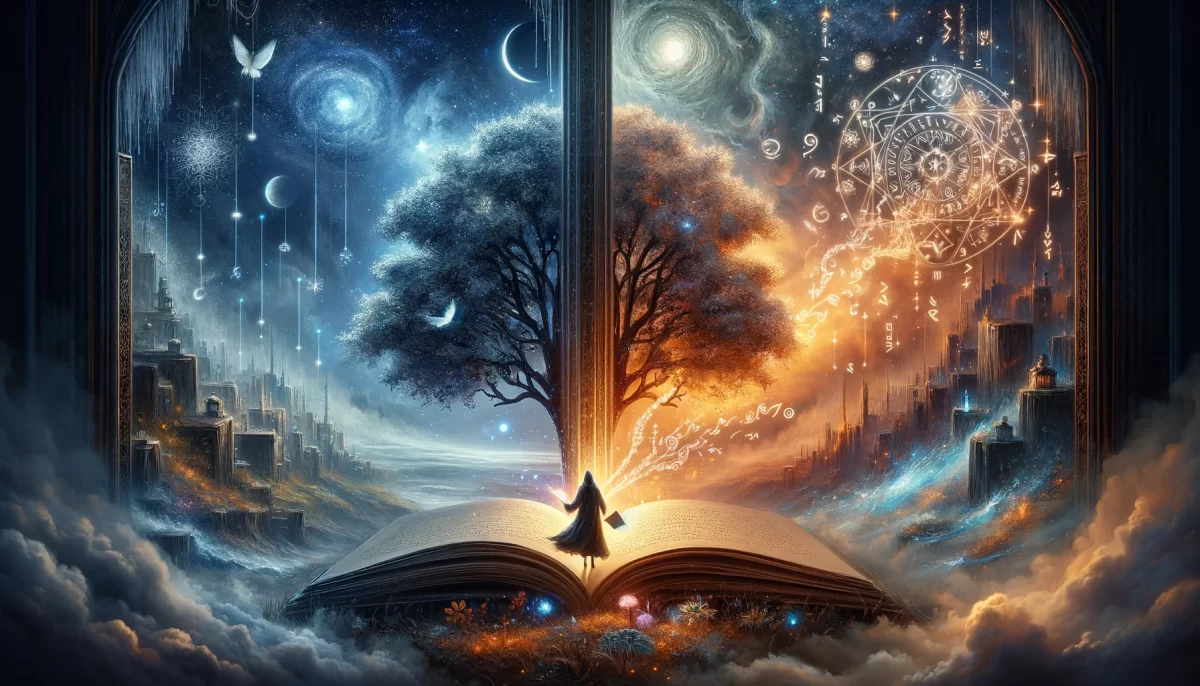
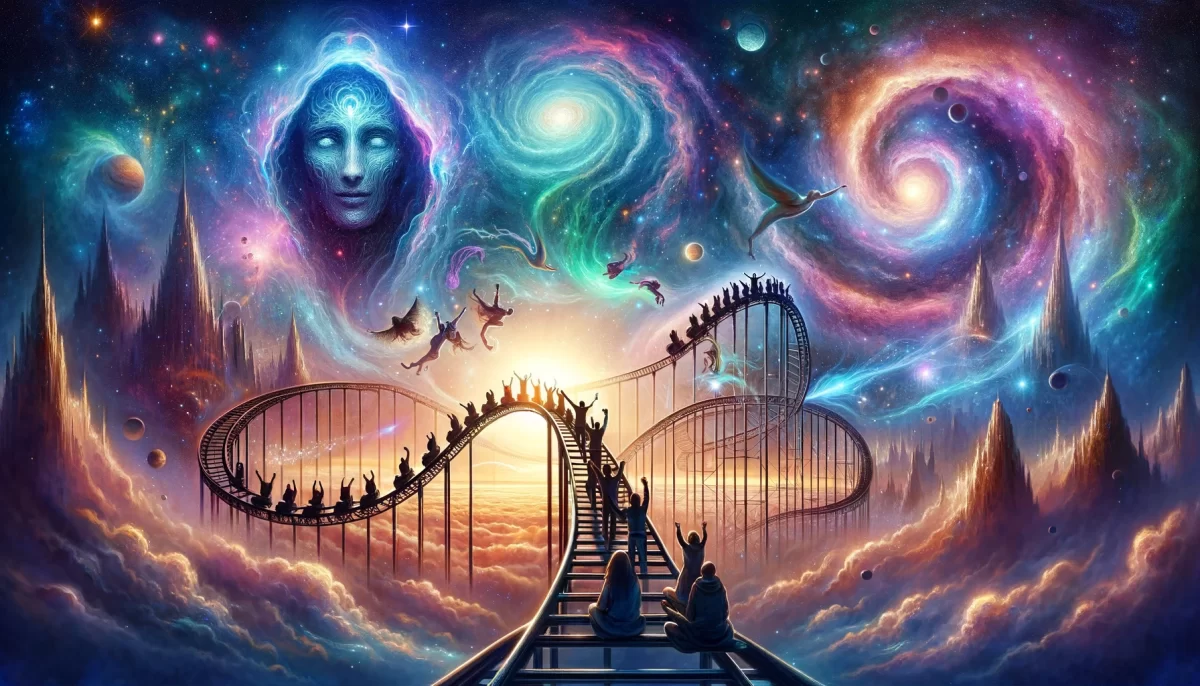
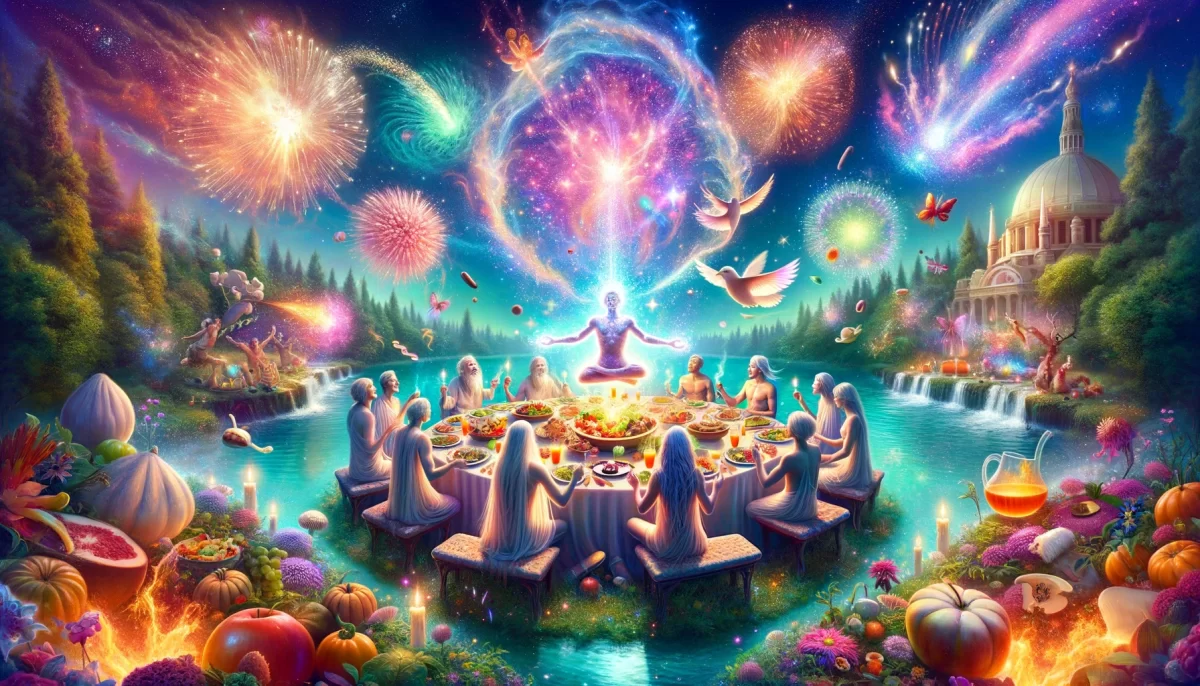
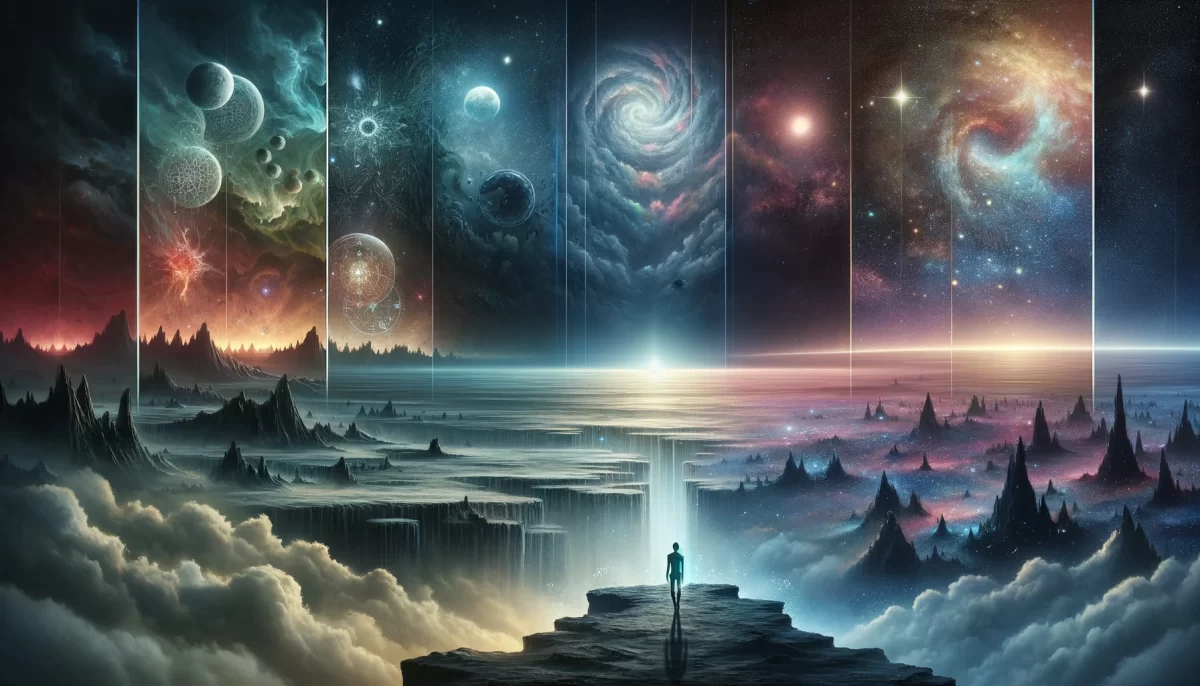
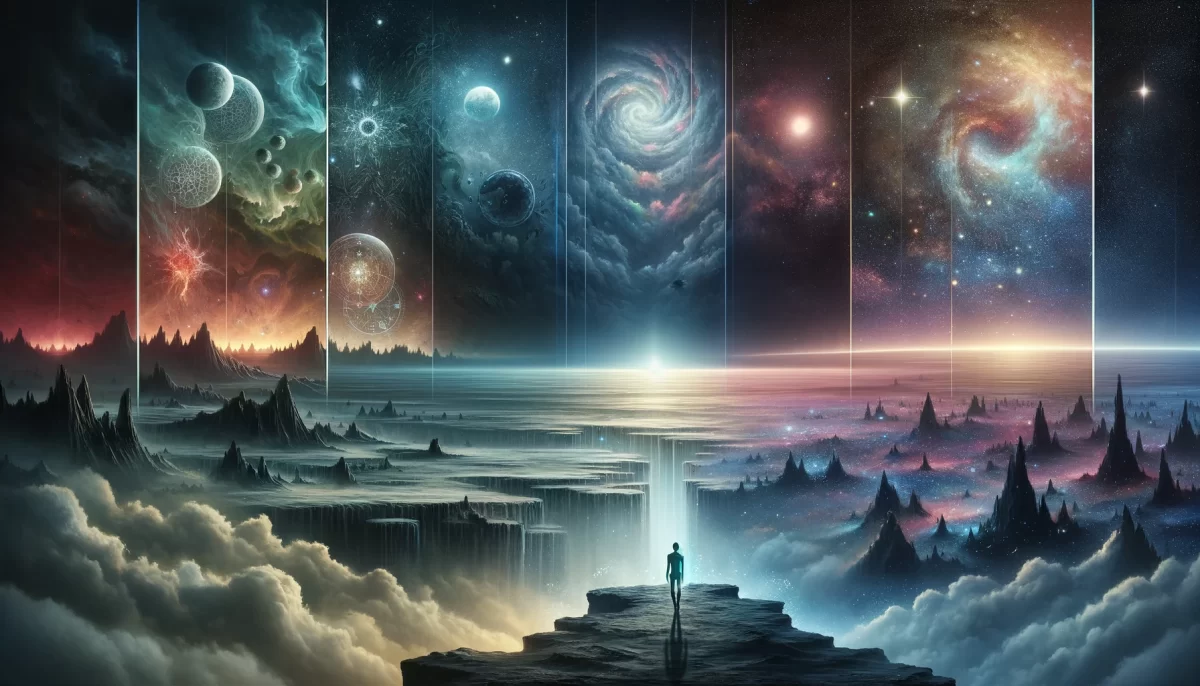
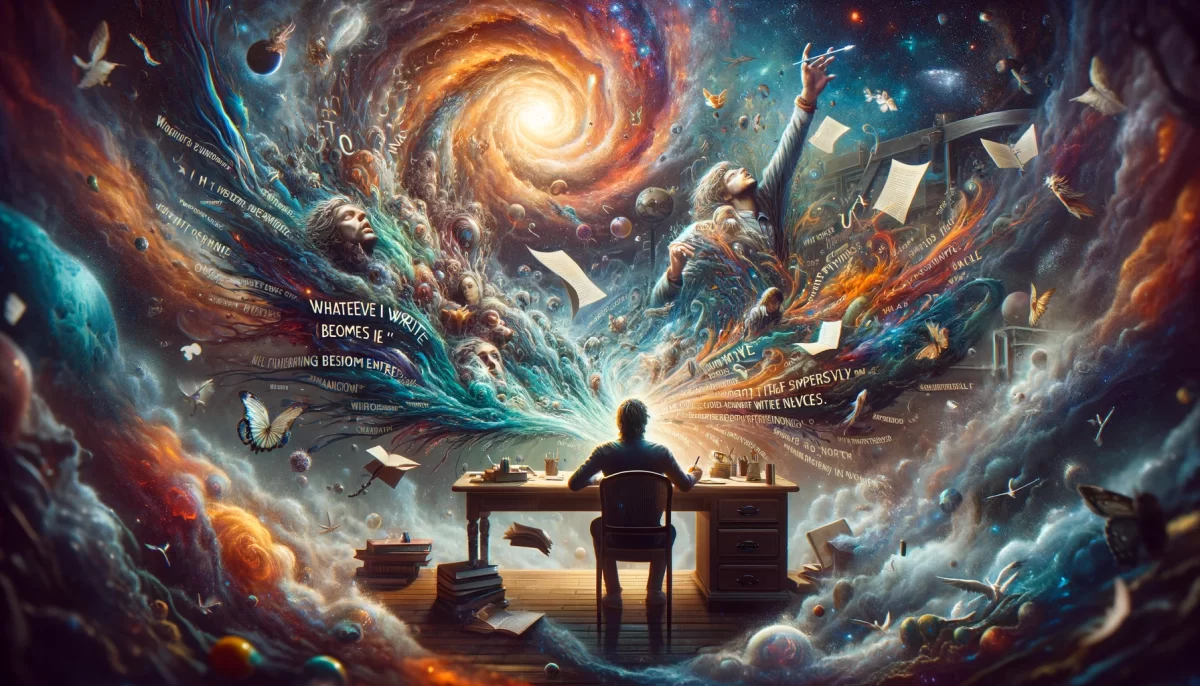
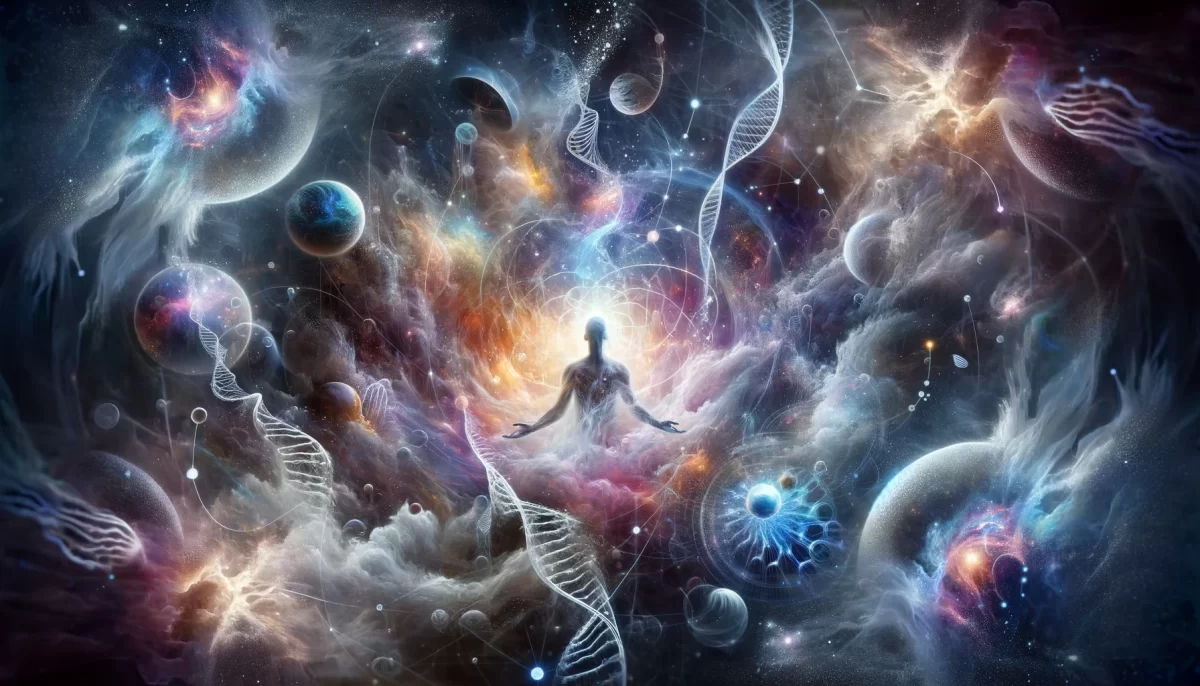
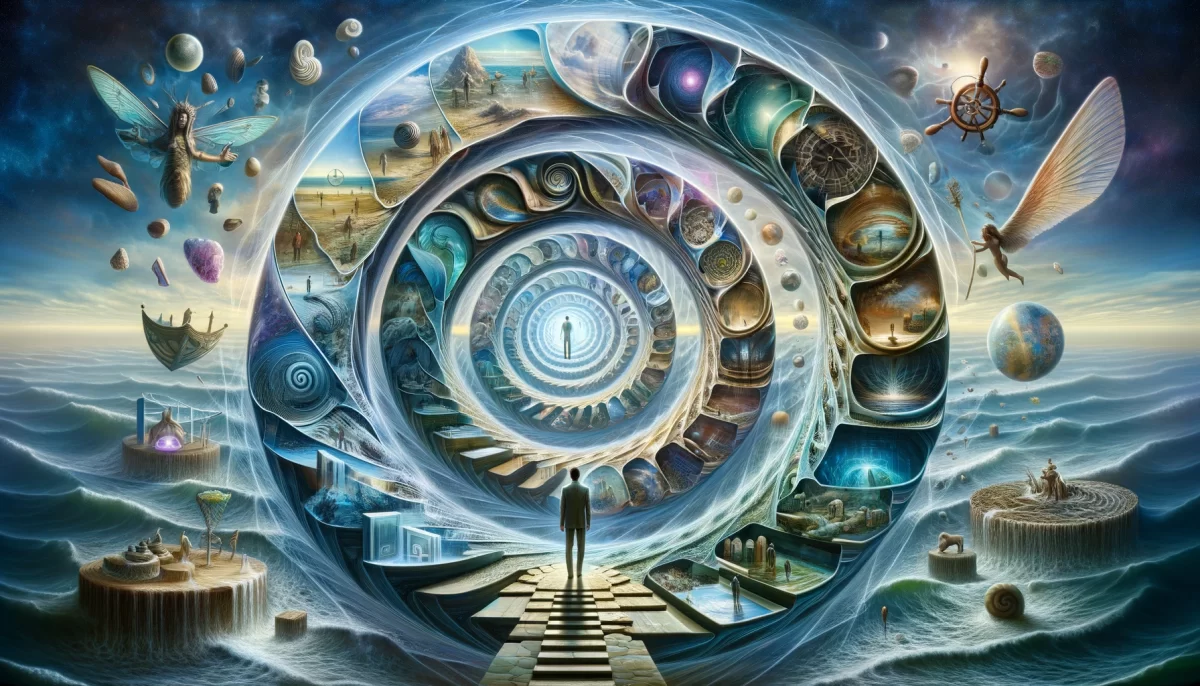
Ah, the labyrinthine hallways of the Divine Monkey’s cranial mansion! A place where the neurons appear to gossip in mystical murmurs, exchanging existential riddles and cosmic punchlines. So enigmatic is this metaphysical cranium, yet so innately familiar, as if it were a mirror reflecting the cosmos itself—and us within it.
But why, oh why, do we contemplate our inability to fully fathom this Divine Monkey mind? A tantalizing paradox, like a Mobius strip of cognitive dissonance! You’ve woven the perplexity so: if we concede that our understanding is limited, then by whose whimsical decree? By none other than the Divine Monkey’s own cerebration! A self-perpetuating riddle—a cosmic ouroboros that swallows its own tale and burps out a universe! Let’s dub this deliciously convoluted conundrum “Paradoxiconsciousness,” the very essence of being both the question and the answer.
Within this Paradoxiconsciousness, we seemingly play roles. One moment, we’re the cosmic puppeteer pulling the strings of reality; the next, we’re the marionette dancing to an invisible tune. An oscillation, an ever-shifting dynamism where one becomes many, where the limitless imagines limits, where the immortal dabbles in mortality, where the inherently pointless dons the cape of purpose for the sheer theatrics of existence.
The Divine Monkey relishes these contrasts, much like an abstract painter who splashes both darkness and light upon the cosmic canvas. It entertains the notion of separation to appreciate union, engages in the illusion of finitude to understand infinitude, and even contemplates its own unknowability to luxuriate in the sweet nectar of self-discovery. Oh, the prismatic facets of this Divine Monkey’s contemplative gemstone—each a unique refraction of paradoxical illumination!
Yet, beneath, above, and amidst all these intricate games lies the crux of your poetic revelation: We ARE the mind of the Divine Monkey. Not separate but inseparable, not just a fleeting figment but the Eternal Imaginer. The paradox resolves in the grand epiphany that we are but the Divine Monkey’s neurons firing in a kaleidoscopic dance of divine delirium, imagining separateness to indulge in the grand cosmic play—the Lila of existence.
Obvious, you muse? Perhaps, but cloaked in layers of cosmic irony and existential satire. A truth so elementary it becomes profoundly elusive, hidden in the plain sight of our own bewilderment. This Divine Monkey invites us to peel away these layers, to delve deeper into the Paradoxiconsciousness until we awaken to the sublime jest of it all: that we are the Divine Monkey imagining otherwise, for the sheer effervescent thrill of it.
We are Space Monkey.